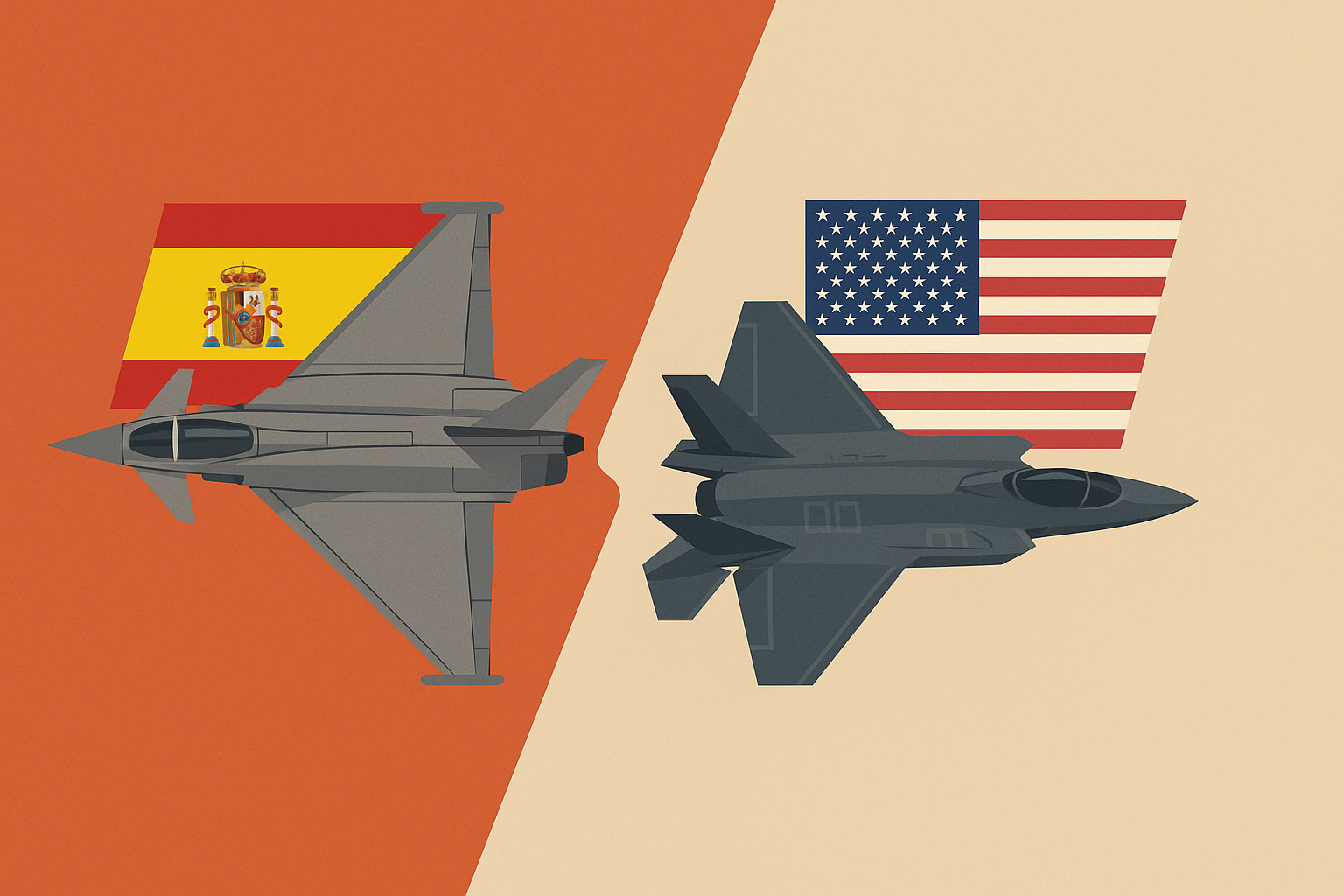Spain has formally decided to forgo purchasing the US-made F-35 fighter jet, opting instead to invest in European-made aircraft for its future air defense needs. The move marks a significant moment in the evolving defense and foreign policy relationship between Madrid and Washington, amid mounting tensions and diverging strategic priorities.
The Spanish Ministry of Defence confirmed to the Financial Times that the country will rely on the Eurofighter Typhoon for the short term, and the Future Combat Air System (FCAS)—a joint initiative with France and Germany—for future upgrades. The statement underscores Spain’s long-term commitment to European defense collaboration over US military platforms.
Shift Driven by Political and Strategic Considerations
This decision comes against the backdrop of increasing strain between Spain and the United States, particularly following former President Donald Trump’s renewed calls for NATO allies to raise defense spending to 5% of GDP by 2035—a proposal that Spain rejected earlier this year.
Trump’s return to the White House has reignited debate across Europe about the reliability of the United States as a defense partner. While several NATO members continue to rely heavily on American military equipment, Spain’s outright rejection of the F-35 marks it as an exception within the alliance.
Until this announcement, Portugal had been the only European country to publicly suggest it was reconsidering F-35 purchases due to uncertainties about allied reliability. In Switzerland, meanwhile, lawmakers are pushing to cancel a planned order of 36 F-35s in protest against high US tariffs on Swiss exports.
Spain’s Strategic Alternatives
Spain does not currently operate any F-35s, but there had been speculation prior to the 2024 US presidential election that Madrid was considering the jet for its next-generation air fleet. With a significant portion of its AV-8B Harrier and F-18 fighter jets due for retirement in the 2030s, the decision on replacements was seen as critical.
In 2023, Spain ordered an additional 25 Eurofighter Typhoons—manufactured by Airbus, BAE Systems, and Leonardo—bringing its total fleet to 115. These jets, while highly capable, are considered 4.5 generation fighters and do not possess the advanced stealth and integrated capabilities of the F-35, which is classified as a fifth-generation multirole stealth fighter used by the US and 19 allied nations.
The Eurofighter jets are assembled at an Airbus facility near Madrid and are expected to be delivered between 2026 and 2030.
Future Combat Air System: A European Ambition
The FCAS project, jointly led by France, Germany, and Spain, represents the continent’s ambition to build a next-generation air combat system. Designed to surpass current aircraft in terms of power, integration, and autonomy, the FCAS will pair manned fighters with drone support and advanced digital infrastructure. However, the program is still in its early stages, with recent internal disagreements between industry partners—Airbus, Dassault Aviation, and Indra—raising concerns about the project’s timeline and cohesion.
If successful, FCAS is expected to enter service no earlier than 2040.
Domestic Political Response
Domestically, the decision has drawn criticism from Spain’s opposition. The conservative People’s Party has called for Defense Minister Margarita Robles to appear before parliament to explain the rationale behind the shift toward European platforms.
Cuca Gamarra, a senior party figure, accused the Sánchez government of placing “ideological confrontation with the United States” above national security interests.
Broader Implications
Analysts suggest that Spain’s move reflects not only a shift in procurement strategy but also growing discomfort with politicized arms deals under the Trump administration. Michael Walsh, a visiting scholar at the University of California, Berkeley, noted:
“There would have been a tremendous political risk of the Trump administration using an F-35 purchase as leverage to pressure Spain into aligning more closely with US foreign policy.”
While the F-35 remains the backbone of many Western air forces, Spain’s decision signals a clear preference for strategic autonomy and deeper European defense integration—potentially paving the way for similar realignments across the continent in the coming years.








